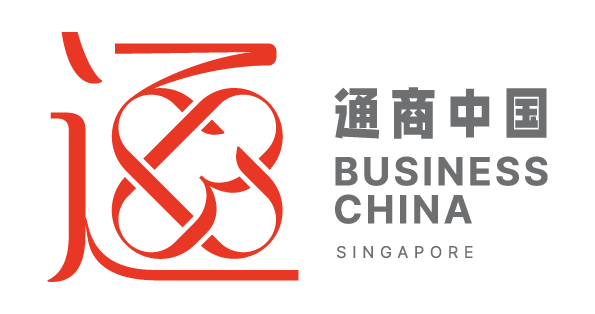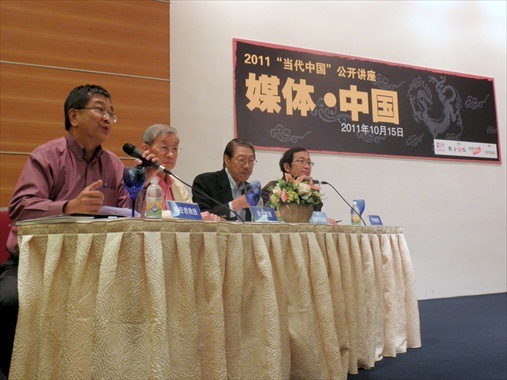As China becomes an economic and political powerhouse, the trends in the greater China region can no longer be ignored. With her rapid economic development, China has since rocketed to international status. How does the International Media view China? How has China made use of the media to show her soft power prowess?
On the afternoon of 15th Oct 2011, about 200 participants attended the ‘2011 Contemporary China Public Lecture Series: Media China’ held at the SPH auditorium to gain insights on Media and China. The guest speakers were Professor Yin Hong of Tsinghua University, China and Professor Leonard Chu of National Chengchi University, Taipei.
The afternoon’s programme was divided into 3 sessions. In the first session, Prof Yin Hong provided insights on the media industries in China, focusing on the differences between traditional media and New Media. He shared that the media authorities in China did not allow New Media to acquire news, as such, news on the internet were obtained from traditional media. However, through channels like podcast, twitter and online forums, New Media was able to attract the nation to acquire news for them and broadcast within short turnaround time. Prof Yin highlighted that although New Media had become more instantaneous than traditional media, the credibility of the reports were still up to the viewers’ discretion.
After a short refreshment break, Prof Leonard Chu shared his perspectives on China’s media as a soft power. Prof Chu used vivid pictures to present how the international media had portrayed China for the past 100 years and analysed the change in their perception. He emphasized that how China had portrayed herself internationally had affected the perception of both the international and China media. Although China’s image has improved, the Chinese government should now act on substantial reforms rather than continuing to exert controls on the media industries.
Moving on to the Q&A session, Prof Eddie Kuo was the moderator of the session. Business China student member, Li Yu from River Valley High School asked the panel’s views on how Weibo (微博) would challenge the Chinese government’s policies on internet? Prof Yin analysed that the Chinese government would not stub New Media’s development as it provided a channel for the netizens to voice their displeasure, as such, the current policy serves as a warning and blacklist for people who had tried to spread adverse messages to the public.
Throughout the Q&A session, both professors’ sense of humour and witty answers triggered much laughter from the floor.
The ‘2011 Contemporary China Public Lecture Series: Media China’ was jointly organised by SIM University, Lianhe Zaobao and Business China.

